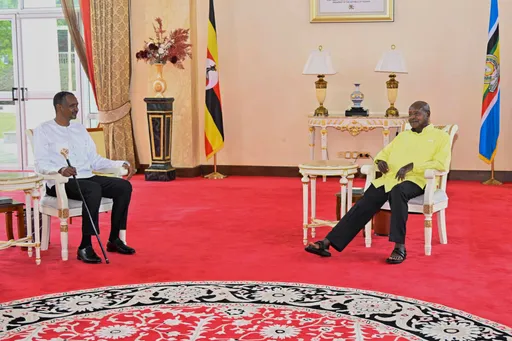Egyptian lawmakers have moved to make constitutional changes that could potentially allow President Abdel Fattah al Sisi to rule over Egypt until 2034.
The bill, sent to the speaker of the parliament, Ali Abdel Aal, consists of several changes, including a section on the limitation of presidential mandates which currently allows a maximum of two four-year terms for a president.
The amendment that the Support Egypt coalition seeks could allow Sisi to run for two more six-year terms after his second four-year term expires in 2022.
Under the current Egyptian constitution, Sisi is not allowed to run for a third term. The bill is viewed as the latest attempt to extend the Sisi’s rule in every aspect of everyday life in Egypt.
Sisi's Rule
Sisi was elected to the presidency in 2014, one year after leading a coup against Mohamed Morsi of the Muslim Brotherhood group, who was the first democratically elected president of Egypt in 2012.
The coup, led by Sisi, resulted in the death of more than1,150 people, most of whom were Brotherhood supporters. The August 14, 2013, killings are now known as the Rabaa Massacre. Since then, the regime has also jailed tens of thousands of people, most of whom are Muslim Brotherhood supporters, and suppressed any dissent using extreme measures.
In June 2018, former military chief Sisi was re-elected to a second four-year term in office, with 97 percent of votes but without any opposition candidate.
All serious opposition contenders halted their campaigns before election day. The main challenger was arrested and his campaign manager beaten up, while other presidential hopefuls pulled out, citing intimidation
What else is in the proposal?
Apart from extending the presidential limit, the proposal includes some other measures that aim to increase the representation of minorities in parliament, as well as changes to legislative processes.
According to the Egyptian state agency MENA, the proposal includes an article which aims to restore the Shura Council, an upper chamber that operated alongside the current 596-member House of Representatives, previously known as the People’s Assembly.
The Shura Council was created in 1980 on the orders of former president Anwar Sadat. Since then, the country has been ruled by the bicameral parliamentary system. The house used to operate as a consultative body that advised on issues drafted or issued by the president and the People’s Assembly. However, it was abolished in 2014.
The proposed amendments also include a quota guaranteeing at least 25 percent of parliament seats for women, as well as “adequate representation” for youth, farmers, workers and the country’s Christian minority.
“Unabated human rights crisis”
Sisi’s government faces heavy criticism for its record on human rights and the erosion of democracy.
Calling it an “unabated crisis”, the latest report from Amnesty International highlighted widespread human rights abuses under Sisi’s rule, often at the hands of the Egyptian state.
“The authorities used torture and other ill-treatment and enforced disappearance against hundreds of people, and dozens were extrajudicially executed with impunity,” Amnesty reported.
“Arbitrary arrests and detentions followed by grossly unfair trials of government critics, peaceful protesters, journalists and human rights defenders were routine,” the report continued.
With the backing of Western powers, Sisi has been able to rule Egypt with an iron fist since 2014. Potentially extending his rule until 2034 means that political opposition, dissidents and Egypt’s democracy may not be moving closer to the aspirations that came with the revolution of the Arab Spring.























